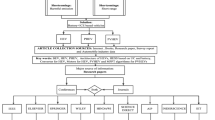Abstract
Efficient regenerative braking of electric vehicles (EVs) can enhance the efficiency of an energy storage system (ESS) and reduce the system cost. To ensure swift braking energy recovery, it is paramount to know the upper limit of the regenerative energy during braking. Therefore, this paper, based on 14 typical urban driving cycles, proposes the concept and principle of confidence interval of “probability event” and “likelihood energy” proportion of braking. The critical speeds of EVs for braking energy recovery are defined and studied through case studies. First, high-probability critical braking speed and high-energy critical braking speed are obtained, compared, and analyzed, according to statistical analysis and calculations of the braking randomness and likelihood energy in the urban driving cycles of EVs. Subsequently, a new optimized ESS concept is proposed under the frame of a battery/ultra-capacitor (UC) hybrid energy storage system (HESS) combined with two critical speeds. The battery/UC HESS with 9 UCs can achieve better regenerative braking performances and discharging performances, which indicates that a minimal amount of UCs can be used as auxiliary power source to optimize the ESS. After that, the efficiency regenerative braking model, including the longitudinal dynamics, motor, drivetrain, tire, and wheel slip models, is established. Finally, parameters optimization and performance verification of the optimized HESS are implemented and analyzed using a specific EV. Research results emphasize the significance of the critical speeds of EVs for regenerative braking.

















Similar content being viewed by others
Abbreviations
- ADVISOR:
-
Advanced vehicle simulator
- EV:
-
Electric vehicle
- ESS:
-
Energy storage system
- HESS:
-
Hybrid energy storage system
- SOC:
-
State of Charge
- UC:
-
Ultra-capacitor
- UDDS:
-
Urban dynamometer driving schedule
References
Bohnsack, R., Pinkse, J., Kolk, A.: Business models for sustainable technologies: exploring business model evolution in the case of electric vehicles. Res. Policy 43(2), 284–300 (2014)
Chiara, F., Canova, M.: A review of energy consumption, management, and recovery in automotive systems, with considerations of future trends. Proc. Inst. Mech. Eng. Part D J. Automob. Eng. 227(6), 914–936 (2013)
Palmer, K., Tate, J.E., Wadud, Z., et al.: Total cost of ownership and market share for hybrid and electric vehicles in the UK, US and Japan. Appl. Energy 209, 108–119 (2018)
Choi, M.E., Lee, J.S., Seo, S.W.: Real-time optimization for power management systems of a battery/super capacitor hybrid energy storage system in electric vehicles. IEEE Trans. Veh. Technol. 63(8), 3600–3611 (2014)
Zeng, X., Yang, N., Wang, J., et al.: Predictive-model-based dynamic coordination control strategy for power-split hybrid electric bus. Mech. Syst. Signal Process. 60, 785–798 (2015)
Li, L., Zhang, Y., Yang, C., et al.: Model predictive control-based efficient energy recovery control strategy for regenerative braking system of hybrid electric bus. Energy Convers. Manag. 111, 299–314 (2016)
Zhao, B., Lv, C., Hofman, T.: Driving-cycle-aware energy management of hybrid electric vehicles using a three-dimensional Markov chain model. Automot. Innov. 2, 146–156 (2019)
Xiong, R., Cao, J., Yu, Q.: Reinforcement learning-based real-time power management for hybrid energy storage system in the plug-in hybrid electric vehicle. Appl. Energy 211, 538–548 (2018)
Li, L., Li, X., Wang, X., et al.: Analysis of downshift’s improvement to energy efficiency of an electric vehicle during regenerative braking. Appl. Energy 176, 125–137 (2016)
Lv, C., Zhang, J., Li, Y., Yuan, Y.: Mechanism analysis and evaluation methodology of regenerative braking contribution to energy efficiency improvement of electrified vehicles. Energy Convers. Manag. 92, 469–482 (2015)
Peng, H., Wang, J., Shen, W., et al.: Compound control for energy management of the hybrid ultra capacitor-battery electric drive systems. Energy 175, 309–319 (2019)
Xu, G., Xu, K., Zheng, C., et al.: Fully electrified regenerative braking control for deep energy recovery and safety maintaining of electric vehicles. IEEE Trans. Veh. Technol. 1–13 (2015)
Naseri, F., Farjah, E., Ghanbari, T.: An efficient regenerative braking system based on battery/super capacitor for electric, hybrid, and plug-in hybrid electric vehicles with BLDC motor. IEEE Trans. Veh. Technol. 66(5), 3724–3738 (2017)
Castaings, A., Lhomme, W., Trigui, R., et al.: Comparison of energy management strategies of a battery/super capacitors system for electric vehicle under real-time constraints. Appl. Energy 163, 190–200 (2016)
Khaligh, A., Li, Z.: Battery, ultra-capacitor, fuel cell, and hybrid energy storage systems for electric, hybrid electric, fuel cell, and plug-in hybrid electric vehicles: state of the art. IEEE Trans. Veh. Technol. 59(6), 2806–2814 (2010)
Zhang, L., Yu, L., Pan, N., et al.: Cooperative control of regenerative braking and friction braking in the transient process of anti-lock braking activation in electric vehicles. Proc. Inst. Mech. Eng. Part D J. Automob. Eng. 230(11), 1459–1476 (2016)
Shen, J., Dusmez, S., Khaligh, A.: Optimization of sizing and battery cycle life in battery/ultra-capacitor hybrid energy storage systems for electric vehicle applications. IEEE Trans. Ind. Inform. 10(4), 2112–2121 (2014)
Chiang, Y.H., Sean, W.Y., Jeong, S.M.: Current control of energy management system by applying ultra-capacitor with boost converter interface for reused lithium-ion battery. J. Clean. Prod. 220, 945–952 (2019)
Zhang, J.Z., Chen, L., Gou, J.F., et al.: Cooperative control of regenerative braking and hydraulic braking of an electrified passenger car. Proc. Inst. Mech. Eng. Part D J. Automob. Eng. 226(10), 1289–1302 (2012)
Lv, C., Zhang, J., Li, Y., et al.: Mechanism analysis and evaluation methodology of regenerative braking contribution to energy efficiency improvement of electrified vehicles. Energy Convers. Manag. 469–482 (2015)
Acknowledgements
The authors wish to acknowledge the Major Scientific and Technological Projects of Anhui Province (Grant No. 17030901065) for its support to this research.
Author information
Authors and Affiliations
Corresponding author
Ethics declarations
Conflict of interest
On behalf of all the authors, the corresponding author states that there is no conflict of interest.
Rights and permissions
About this article
Cite this article
Bai, X., Chen, G., Li, W. et al. Critical Speeds of Electric Vehicles for Regenerative Braking. Automot. Innov. 4, 201–214 (2021). https://doi.org/10.1007/s42154-021-00143-3
Received:
Accepted:
Published:
Issue Date:
DOI: https://doi.org/10.1007/s42154-021-00143-3




